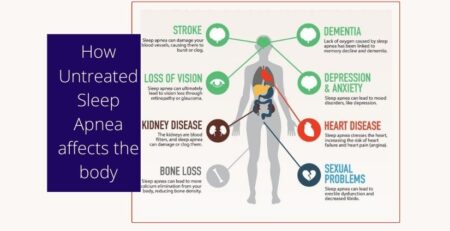Sleep Apnea and Smoking
Sleep disorder, one of the most prevalent sleep disorders worldwide, can have a wide range of effects on a person’s life. But at the same time, lifestyle decisions like giving up smoking can also affect sleep disorders. Many people have wondered whether smoking might cause sleep disorders.
As it turns out, there is a deeper connection between sleep disorder and smoking than might first appear. Everything you need to know about the science of smoking, quitting, and the connection between sleep disorder and smoking is provided here.
Relationship between Sleep Apnea and Smoking
Examining the various connections between these two is useful for properly comprehending how Sleep-Disordered Breathing develops after quitting smoking. There are three different types of Sleep-Disordered Breathing and each one is peculiarly linked to cigarette smoking.
Obstructive Sleep Apnea (OSA)
Obstructive Sleep-Disordered Breathing is the most prevalent type of sleep disorder (OSA). Your throat muscles begin to relax when you have OSA, which causes the tissue in the back of your throat to collapse. Your upper airway becomes blocked, which causes obstructive sleep disorder.
A brief interruption in oxygen delivery is among the most dangerous concerns that people with sleep disorder must deal with. It can be dangerous when your blood’s oxygen levels drop while you’re sleeping due to irregular breathing patterns. Smokers are at a higher risk of developing OSA because there is a strong correlation between sleep disorder and both insomnia and OSA.
Central Sleep Apnea
A central sleep disorder (CSD) is a somewhat less common type of sleep disorder with a more significant impact on brain function. If you have CSA, you may experience frequent breathing pauses while you sleep as a result of your brain failing to signal your lungs to breathe. As a result, Central Sleep Apnea frequently causes your blood oxygen levels to drop. Headaches and weariness, which are common signs of nicotine withdrawal, may result from this.
Complex Sleep Apnea
Complex Sleep Apnea Syndrome (CompSAS) is the least common form of sleep apnea . Obstructive and central sleep apnea occur simultaneously in people with CompSAS. It’s critical to get the assistance you require to better manage your symptoms and get a better night’s sleep if you recently quit smoking and have been diagnosed with Complex Sleep Apnea Syndrome.
Does Smoking cause Snoring?
The quantity of smoking a person does and their risk of snoring are positively correlated, according to studies on the issue. Reduced airflow to the lungs frequently causes snoring. Many medical professionals have advised against smoking as a key risk factor for this sleep disorder since restricted airflow plays a significant role in the development of sleep apnea.
When considering “does smoking cause you snore,” it’s crucial to keep in mind the crucial link between smoking and obstructive sleep apnea. If you choose to give up smoking in order to lower your risk of developing sleep apnea, you can make it easier for oxygen to pass more freely through your lungs and reach your brain.
Sleep Apnea after quitting Smoking
Can smoking induce sleep apnea? is the fundamental question surrounding sleep apnea and cigarette smoking. However, t The question of whether sleep apnea can start to develop after quitting smoking has also been given significant attention.
Smoking cessation and sleep apnea have a complicated interaction. After smoking your final cigarette, you may suffer from a wide range of side symptoms, including tingling, nausea, irritability, headaches, and coughing. However, one of the most obvious negative effects of nicotine withdrawal is insomnia.
You might discover that you have symptoms that resemble sleep apnea symptoms. It’s possible that you’ll have problems falling asleep or remaining asleep all through the night. Many former smokers may come to believe that quitting smoking was more harmful than beneficial as a result of these unpleasant effects.
It’s important to remember, though, that the negative consequences of quitting nicotine are just fleeting. Long-term, smokers who give up have a higher quality of life than smokers who continue their habit. Better health and easier sleep follow as negative effects, including insomnia, diminish.
Conclusion
Smoking and Sleep-Disordered Breathing are connected in a variety of ways that make them unsettling. Smoking can make the oxygen flow obstruction that commonly characterizes OSA much worse. Making your health and well-being a priority is the first step in getting a better night’s sleep.














Leave a Reply